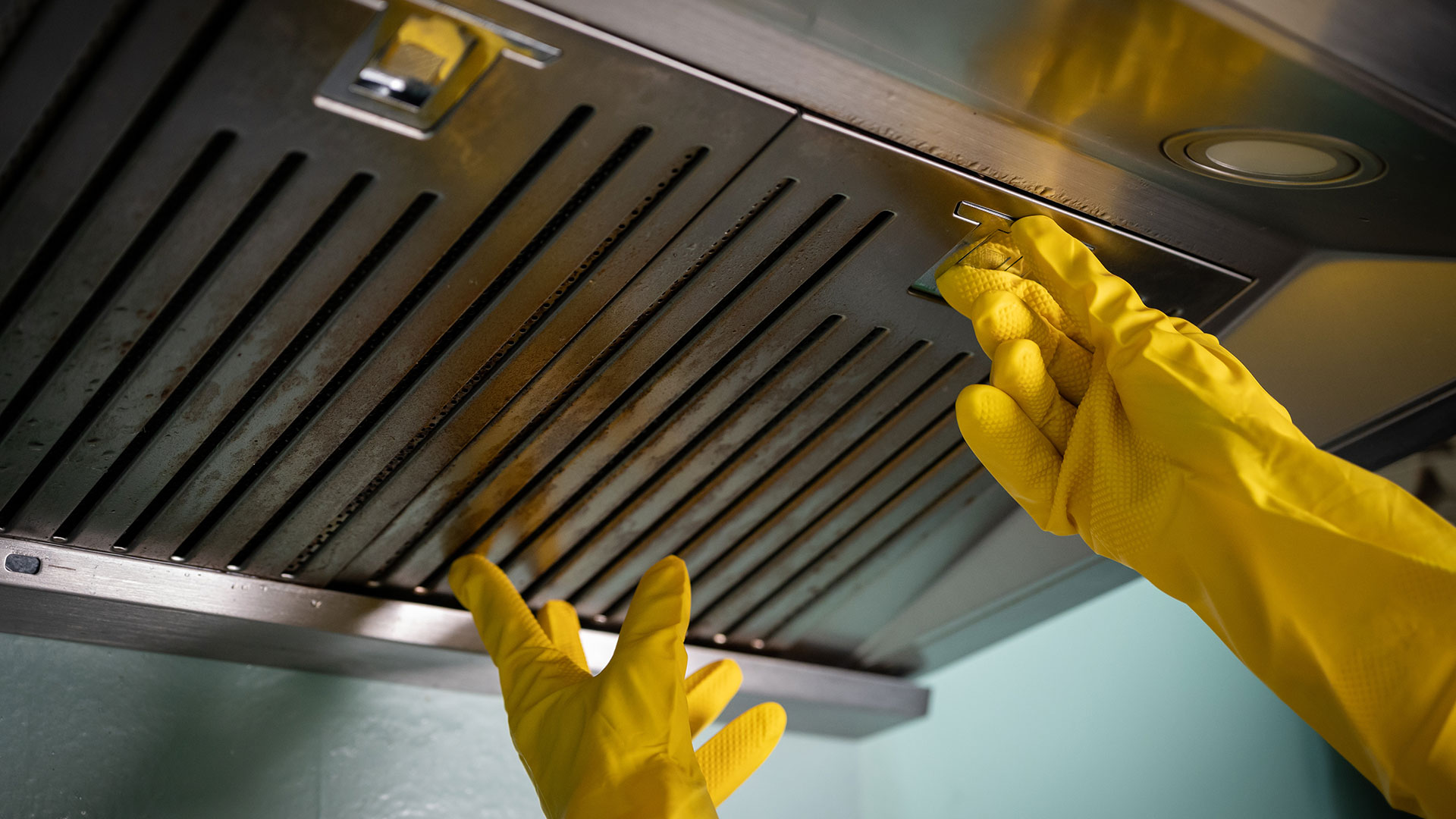Introduction
Dealing with heat, oil, smoke, and continuous cooking is a part of running a busy restaurant or industrial kitchen. The industrial range hood is one of the most important items for keeping a kitchen safe and functional. It lowers the risk of fire and helps manage grease accumulation in addition to improving air quality. However, frequent maintenance and thorough cleaning are vital to keep it operating at its peak. Ignoring this important work may result in expensive equipment repairs, increased fire hazards, and breaches of the health code. To keep your kitchen safe, legal, and functional, this article will teach you all you need to know about cleaning and maintaining industrial range hoods.
Why Commercial Range Hood Cleaning Is Important
A commercial range hood main function is to remove fumes, smoke, and oil from the air. These particles build up in the ducting, filters, and hood over time. This accumulation represents a serious fire threat in addition to producing disagreeable smells if it is not cleaned regularly. Range hoods are often inspected by health inspectors, and neglecting to maintain them may result in high penalties or even the temporary closure of your company. Additionally, clean hoods enhance ventilation, make your kitchen more pleasant, and guarantee a safer working environment for your employees.
How Often Should You Clean a Commercial Range Hood
The sort of food you cook and how often you use your kitchen determine how frequently you should clean it. Cleaning may be necessary once a month in high-volume restaurants that utilize fryers and grills daily. Cleaning may be appropriate on a quarterly or semi-annual basis for smaller kitchens or restaurants with lower cooking loads. Consistency is essential; set up a routine and follow it to prevent hazardous accumulation and compliance problems.
A Comprehensive Guide to Commercial Range Hood Cleaning
Commercial range hood cleaning calls for careful attention to detail and appropriate safety precautions. First, make sure that every item under the hood is covered and switched off. Before cleaning them, please take off the grease filters and immerse them in a degreasing solution. After that, thoroughly clean the hood’s inside, paying particular attention to the places where grease builds up the most. To make sure airflow is unhindered, ductwork should also be examined and cleaned by professionals. To safeguard your employees and kitchenware, always use food-safe cleaning products and abide by local safety regulations.
Professional Maintenance vs. In-House Cleaning
Basic cleaning duties may be completed by your employees, but comprehensive cleaning and long-term performance need expert maintenance. Qualified specialists properly clean exhaust systems, fans, and ductwork using specialized equipment. Additionally, they look for other problems like broken fans, worn-out filters that could need to be replaced, or motor faults. Your commercial range hood will continue to function effectively while adhering to health and safety laws if you combine daily in-home cleaning with planned expert maintenance.
Observance of safety and health rules
Commercial kitchens must maintain adequate ventilation systems in accordance with health and fire safety laws. Range hoods are regularly inspected to make sure there is no grease accumulation and that they are operating properly. Violations, penalties, or even forced closure may follow noncompliance. Maintaining a clean commercial range hood keeps you in compliance and gives customers and employees peace of mind.
Conclusion
One of the most crucial pieces of equipment in any professional kitchen is a commercial range hood, but regular cleaning and maintenance are essential to its performance. You can keep your company safe from fire threats, keep your workplace healthy, and prolong the life of your equipment by implementing a regular cleaning program, combining in-house labor with expert maintenance, and according to safety standards. You may save money and maintain a safe and functional kitchen by devoting time and energy to range hood maintenance.

